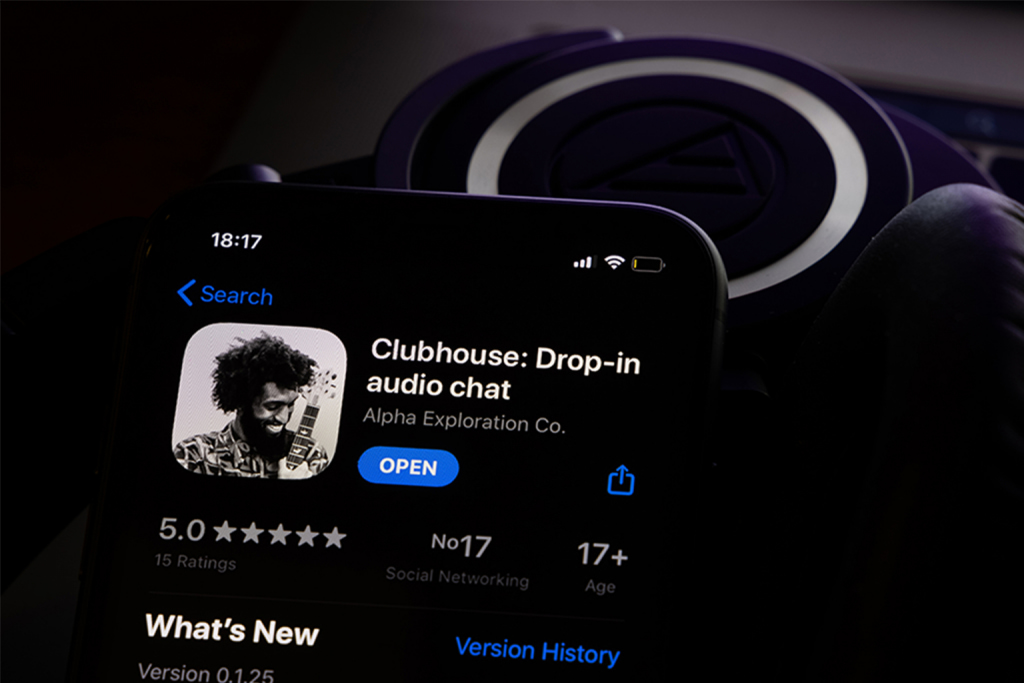There’s a party, or several parties, happening tonight. But do you have an invitation? They’re also occurring all over the globe, are online and completely audio-based. Welcome to the booming world of Clubhouse, a new audio social networking app that’s taken Japan by storm.
Clubhouse first launched on iOS in April 2020, gaining popularity due to the sheltering at home that took place during the Covid-19 pandemic. It is essentially a space for casual, drop-in conversations. Users can create or join “rooms” and are categorized as moderators, speakers or audience members. Moderators have a small set of powers such as being able to speak and nominating fellow users to join them “on stage”, while audience members are privy to listening in. But aside from these few features, rooms are mostly free-flowing and rely on the communication skills of the participants to keep it engaging.
View this post on Instagram
Although it holds a relatively small user base, especially when pitted against juggernauts like Instagram and TikTok, the platform made waves early on for its ability to facilitate nuanced conversations on social justice, reform and the Black Lives Matter movement. Since then, Clubhouse has conquered the hearts of stay-at-homers one region at a time. Being invite-only, receiving access has become somewhat of a social status here in Japan, so much so that certain users are seizing the opportunity to make a small profit by selling their unsused invitations.
Japan-based entrepreneurship, Japanese food and culture, bilingual “cafés” and “inaka” real estate are some of the hot topics that we’ve noticed mushrooming overnight. The speed in which the app is being adopted has taken some users by surprise, many remarking that they’ve seen friends, acquaintances and even clients and colleagues appearing in unexpected rooms. Some noteworthy users include Naomi Watanabe, Sumire and even members of government such as Minister for Administrative Reform and Regulatory Reform, Kono Taro. And a recent server outage is rumored to have been caused by the flood of users joining a room where several ex-Terrace House members such as Niino Toshiyuki were making their own grand appearances.
https://twitter.com/HirokoTabuchi/status/1357324761362296836?s=20
Clubhouse offers a candid and unfiltered format that is as authentic as it gets. It is a far cry from the highly aesthetic-driven nature of other social media platforms, and it will be interesting to see the direction Clubhouse takes here in Japan. The sheer number of Japanese users that have flocked to the app has already negated the assumption that Japanese internauts are often shy and private with their online presence. One thing is for sure: There is a clear interest in using the app as a way to reach new audiences and grow businesses in the age of social distance and online webinars.
But as plans for Covid-19 vaccines to roll out in Japan materialize, one wonders whether we’ll see Clubhouse’s popularity fade away as people go back to socializing in person. App fatigue seems to be the general trend for in-the-moment apps, as we saw in the early days of the pandemic with Zoom and Houseparty. Long term, it will be fascinating to see how Clubhouse stacks up against key players here such as Line, which already comes with some voice capabilities. For now, though, it seems we’ve come full circle, as we go from a generation of texters and short messaging systems to now our first and primary mode of communication: conversations.









